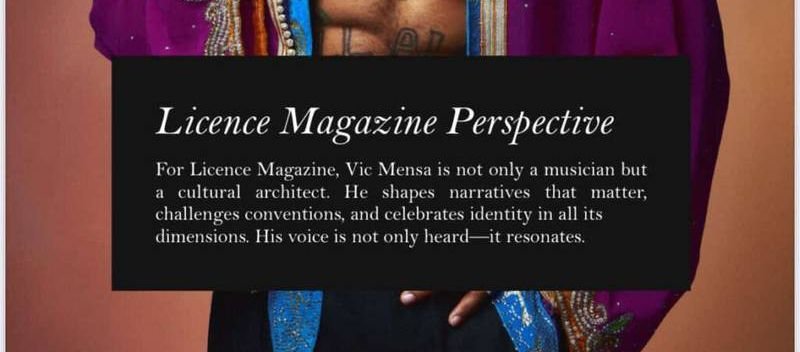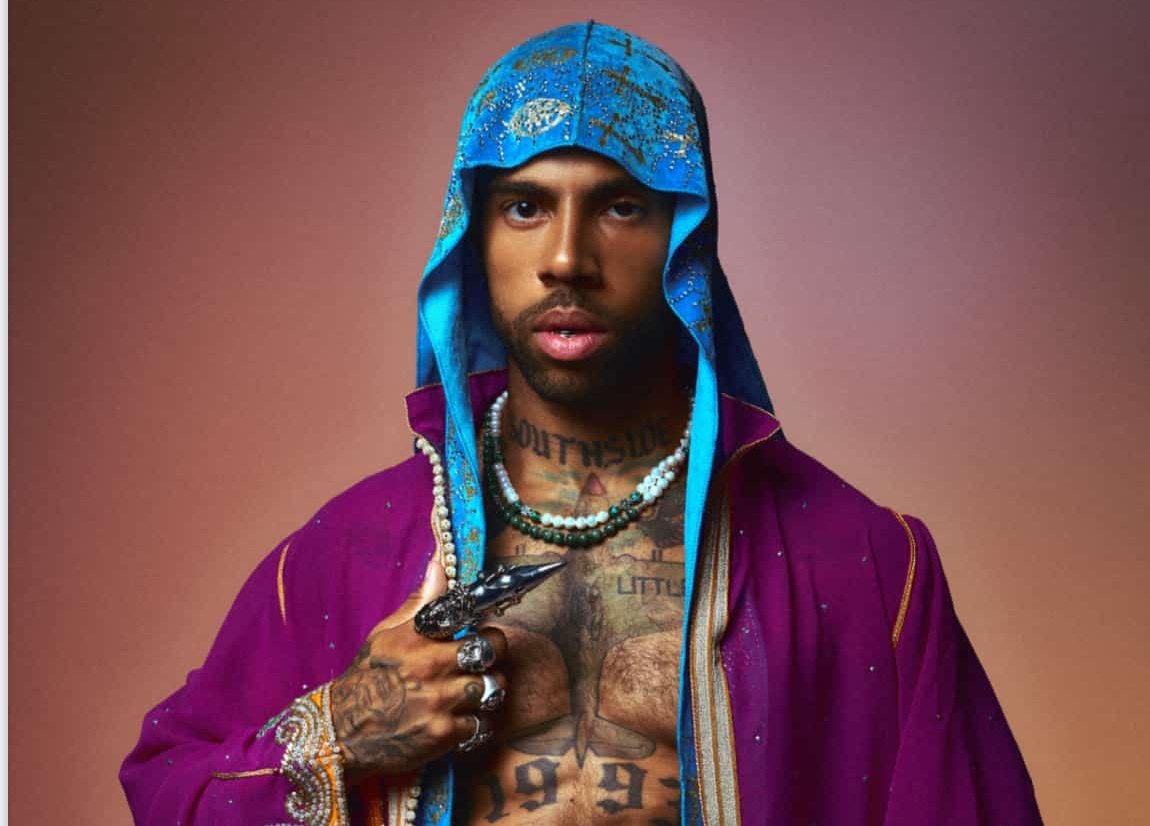
In an era where the music industry constantly evolves, few artists embody creative independence and cultural awareness as powerfully as Vic Mensa. With his latest project Sundiata, the Chicago-born artist of Ghanaian descent takes a bold step toward total ownership not just of his sound, but of his narrative, his heritage, and his purpose. For Mensa, independence isn’t just a career choice; it’s a philosophy. “Sundiata is about releasing something directly for my biggest supporters something I could own in full,” he explains. This statement perfectly captures the spirit of an artist who has long sought freedom from industry constraints, crafting a musical journey rooted in authenticity and self-determination.
The project’s title, Sundiata, is inspired by Sundiata Keita, the legendary founder of the Mali Empire a historical figure synonymous with strength, vision, and sovereignty. Mensa’s decision to connect his EP to this lineage is no coincidence. It reflects a deep reverence for ancestry and a desire to reclaim the power that comes with
understanding one’s roots. His recent encounter with Salif Keita, a direct descendant of Sundiata, adds a poetic layer to this story bridging music, history, and identity.
Beyond the symbolism, Sundiata represents a shift in how artists today can approach their craft. By choosing to release the project independently, Mensa avoids the “red tape” that often slows down creativity no label interference, no sample clearances, no external control. This freedom allowed him to focus on raw artistry, reproducing and reinventing songs from his album sessions with his long-time collaborator. The result is a soundscape that feels both revolutionary and deeply personal. At the heart of Mensa’s independence lies a larger message one of empowerment and legacy. His work challenges the traditional structures of the music industry, inspiring younger generations of artists to value ownership over exposure. “If someone walks away from this project feeling like they got an insight into who I am and what I stand for, then they took exactly what I would have wanted them to,” he says.
But Vic Mensa’s vision extends far beyond the studio. With a forthcoming album, a long-term book project, and even a TV show in the works, he continues to expand his creative empire one built not on fleeting fame, but on autonomy and purpose.
In many ways, Sundiata is more than an EP; it’s a statement a reminder that true artistry begins when you own your voice.
Vic Mensa is more than a musician; he’s a storyteller and innovator. With Sundiata, he blends independence, heritage, and creativity, releasing music he fully owns. Inspired by his Ghanaian roots and Sundiata Keita, his work honors ancestry while pushing boundaries. Beyond music, Mensa engages with social causes, using his art as a platform for expression, empowerment, and cultural dialogue.
— Lorenzo Isaac

The Power of Independence: How Vic Mensa Redefines Ownership in Music
> “True artistry begins when you own your voice.” — Vic Mensa
Interview with Vic Mensa
1. What were your earliest musical influences and how have they shaped your unique style?
African music. My uncle is a Ghanaian Highlife pioneer, Chief Kofi, so we’d listen to his music and I listened to music from that era the 70s and 80s. Then, Jimmy Hendrix, and classic rock and roll. Right now, the styles I’m exploring are pretty much a mixture of my musical influences
2. How would you describe your artistic evolution from your beginnings to today?
I don’t really try to focus too much on my artistic evolution. I try to think about where I am as a person and what my goals are as I’m creating and working on stuff.
3. Was there a specific moment when you knew music would be your calling?
Early on, I had an intuition that I was good at it it just came naturally to me. I always wrote stories as a kid and was really gifted as a writer before rap. So when I wrote raps, I approached it with that same diction and detail that I would my school projects. My first songs and verses were really good, and I felt that I had a future in music.
4. You released Sundiata earlier this year. What is the vision behind this project and what does the title mean to you? Can we expect another project this side of the year or in 2026?
‘Sundiata’ is about releasing something directly for my biggest supporters. Something that I could own in full and not need to take any money and dilute any ownership to release. I did meet recently the descendants of Sundiata Keita, who was the founder of the Mali Empire. I met Salif Keita, who’s a direct descendant of Sundiata – that was pretty magical.
I think it will be in 2026 when I get my full album out. I already had my album and have been mostly done with it before I did Sundiata, but I wanted to do the EP more immediately because it would be less red tape: it didn’t have samples to clear, and a bunch of different producers, features, and the logistical, financial responsibilities that come along with that. And I wasn’t precious with it because it’s not the album that I’ve been working on for just about two years now.
2026 I’ll be putting out the full album.
5. What messages or emotions do you hope your fans take away from this project?
There’s definitely strong messages of power, independence and a certain call to ancestry. There’s some revolutionary ideas and empathy. Overall, some understanding of me as a person because the music is an extension of that things I think about, things I care about, the way I see the world. So, if someone walks away from this project after listening to it, feeling like they got any insight into who I am and what I stand for, then I think they took it exactly what I would have wanted them to.
6. Can you tell us about your musical creation process, from concept to production?
This project was made out of primarily songs that came in the sessions for my album, and they weren’t going to be on the album. What I did was took those songs, flipped the beats and reproduced them. So, I produced all of the music with my friend who makes a lot of my music with me. This was a little bit of a unique process, and most of these songs we reproduced took the acapellas, found different samples, replayed those samples, and changed ‘em.
7. You have often addressed social issues in your songs. What causes are most important to you today?
The cause that is most important to me as a human being is things that take place in Chicago, things that take place in Africa. I will say the humanitarian crisis globally is also very important to me.
8. How do you manage to balance your personal life and your demanding music career?
I’m working a lot on trying to develop more skills of organization and time management. Especially with being a father, there’s a lot more home responsibilities than I’ve ever had and there’s just more things to consider. It’s normal for me to be in the studio 10-12 hours a day, and that’s what I would default to. Now, I just get up crazy early and do my best to get everything done.
9. What are your short- and long-term projects?
Short term is definitely the release of this upcoming album because it’s pretty close. Then, long term, I got a book that I’ve been writing for many years now and a TV show I’ve been working on for about a year.
10. If you could collaborate with any artist, living or deceased, who would it be and why?
You gotta go with Prince just because he’s the goat.


Turkey tours packed Turkey vacation packages were flawless. The hot springs in Pamukkale and the beaches in Antalya were highlights. https://abknives.shop/?p=4483